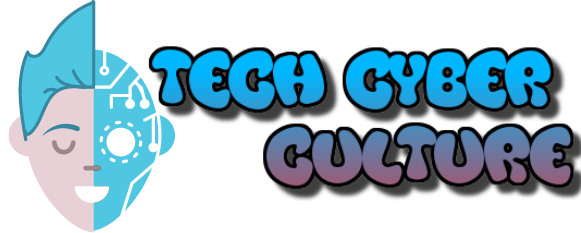In today’s fast-paced digital landscape, users expect instantaneous access to information. Whether it’s tracking live sports scores, collaborating on documents, or chatting in real-time, applications that provide real-time data updates offer a more dynamic and engaging user experience. For developers, achieving this level of responsiveness has become much easier thanks to technologies like Firebase.
In this blog, we will explore how Firebase enhances full-stack applications by enabling real-time data updates, focusing on how this technology boosts user experience and performance. This is especially beneficial for developers looking to enhance their skills through full stack Java developer training, as understanding real-time data handling is crucial for modern applications. Firebase simplifies the implementation of real-time updates, significantly improving user interaction and application performance.
What is Firebase?
Firebase, developed by Google, offers a comprehensive set of tools for building web and mobile applications. It provides real-time data updates, authentication, cloud storage, and much more. One of Firebase’s standout features is its real-time database, which allows developers to synchronize data across all connected clients instantly. This means that any changes made in one place are reflected across users’ devices immediately, providing a seamless experience.
For those pursuing a full stack developer course in Bangalore, Firebase can serve as an essential tool for building scalable and real-time responsive applications. By leveraging Firebase’s Realtime Database and Firestore, developers can focus on the business logic and front-end, while Firebase handles the complex task of real-time data syncing.
The Importance of Real-Time Data in Full-Stack Applications
Real-time data capabilities significantly enhance both performance and user experience in full-stack applications. Applications that update dynamically without needing to refresh or poll for changes create a more seamless and interactive experience. Here are some key advantages of real-time data updates:
- Improved User Experience: Real-time updates ensure that users receive up-to-the-minute information, boosting responsiveness. For instance, Firebase can instantly update conversations in chat applications, making the experience more interactive and engaging.
- Increased Engagement: Applications featuring real-time data, such as e-commerce platforms that update product availability in real time, can keep users engaged for longer periods. Firebase allows developers to provide these live updates without additional complexity.
- Scalability and Efficiency: Traditional data-update methods, like HTTP polling, can slow down application performance and consume more server resources. Firebase’s real-time database eliminates the need for frequent polling, instead pushing updates to clients when data changes.
Mastering these concepts through full stack Java developer training can greatly improve a developer’s ability to build modern, responsive applications. Understanding how real-time data works will enable developers to create more interactive and efficient applications, which is increasingly demanded in today’s tech landscape.
How Firebase Real-Time Data Works
At the heart of Firebase’s real-time capabilities is its NoSQL cloud database that stores data as JSON objects. This database is designed for real-time synchronization, ensuring that any changes made at one location are instantly reflected across all connected clients.
Real-Time Database vs. Firestore
Firebase offers two main solutions for handling real-time data updates:
- Firebase Realtime Database: This was the original solution for real-time data synchronization between clients and servers. It’s ideal for smaller applications or projects that require real-time data updates.
- Firestore: The newer and more advanced solution, Firestore, offers real-time data syncing with more robust querying capabilities. It’s designed to handle more complex data structures and larger applications, offering greater scalability than the real-time database.
Both databases ensure low latency and fast data syncing, making them essential tools for developers looking to build responsive and interactive applications. For developers enrolled in a full stack developer course in Bangalore, learning how to integrate Firebase into their tech stack will provide them with a competitive edge in creating real-time applications.
Firebase and Full-Stack Development
Firebase integrates seamlessly into the full-stack development process, especially for those experienced in JavaScript-based frameworks. Combining Firebase with front-end technologies like React or Angular and back-end systems built with Java (or Node.js) enables developers to implement real-time data syncing efficiently.
For instance, a developer may use Java for back-end logic while Firebase manages the real-time data layer, ensuring updates are pushed to clients in real time. This integration is crucial for developers seeking expertise through full stack Java developer training, as it simplifies the complexities of managing real-time data updates, making the development process faster and more efficient.
On the other hand, students taking a full stack developer course in Bangalore will find Firebase invaluable when building scalable, real-time applications. Understanding how Firebase acts as a real-time data layer in full-stack projects allows students to gain a deeper understanding of how to manage both front-end and back-end logic effectively.
Use Cases for Real-Time Data in Applications
Firebase’s real-time capabilities open up a wide range of possibilities for modern applications. Some potential use cases where real-time data can enhance functionality include:
- Live Chat Applications: Firebase can enable real-time message syncing, ensuring that conversations are updated across all clients instantly without refreshing.
- Collaborative Platforms: Platforms for collaborative work, such as document editors or project management tools, can benefit from real-time data syncing, ensuring that multiple users can work on the same data without conflicts.
- Real-Time Dashboards: Industries such as finance, logistics, and healthcare rely heavily on real-time data dashboards. Firebase can push updates to users in real-time, ensuring they always see the most current data.
- Multiplayer Games: Firebase is perfect for multiplayer games that require syncing game states across multiple players in real-time, enhancing the gaming experience.
For developers undergoing full stack Java developer training, mastering Firebase in real-time applications adds valuable skills to their toolkit, helping them build more responsive applications.
Best Practices for Using Firebase in Real-Time Applications
While Firebase provides powerful tools for real-time data updates, it’s essential to implement them correctly. Here are some best practices for using Firebase:
- Optimize Data Structure: Firebase stores data in large JSON objects, so structuring your data efficiently is critical. Using denormalization helps reduce the number of reads and optimizes performance.
- Limit Data Usage: Firebase charges based on data usage, so it’s important to minimize unnecessary data transfers. Use Firestore’s querying capabilities to retrieve only the data you need.
- Security Rules: Firebase allows you to define security rules for managing read/write access to your database. Careful configuration of these rules is crucial for protecting user data.
- Offline Persistence: Firebase supports offline data storage, ensuring that applications remain functional even when a user is disconnected. Changes made while offline will sync once connectivity is restored.
For developers enrolled in a full stack developer course in Bangalore, mastering these best practices will help them build highly scalable, real-time applications that provide an enhanced user experience.
Conclusion
Implementing real-time data updates using Firebase is a game-changer for modern full-stack applications. It enhances the user experience by providing immediate feedback while boosting application performance by minimizing resource usage. Whether you are building chat applications, collaborative platforms, or real-time dashboards, Firebase enables developers to deliver dynamic and responsive experiences.
For developers looking to advance their skills, learning how to implement Firebase for real-time data updates is essential. Whether you’re pursuing full stack Java developer training or enrolling in a full stack developer course in Bangalore, understanding Firebase will significantly improve your ability to build cutting-edge, scalable, and real-time applications.
By mastering Firebase, full-stack developers can create innovative applications that meet the growing demand for real-time functionality, positioning themselves for success in an ever-evolving tech landscape.
Name: ExcelR – Business Analyst, Full Stack Development, Tableau & Power BI Course Training
Address: 10, 3rd floor, Safeway Plaza, 27th Main Rd, Old Madiwala, Jay Bheema Nagar, 1st Stage, BTM 1st Stage, Bengaluru, Karnataka 560068
Phone: 07353006061
Business Email:enquiry@excelr.com






